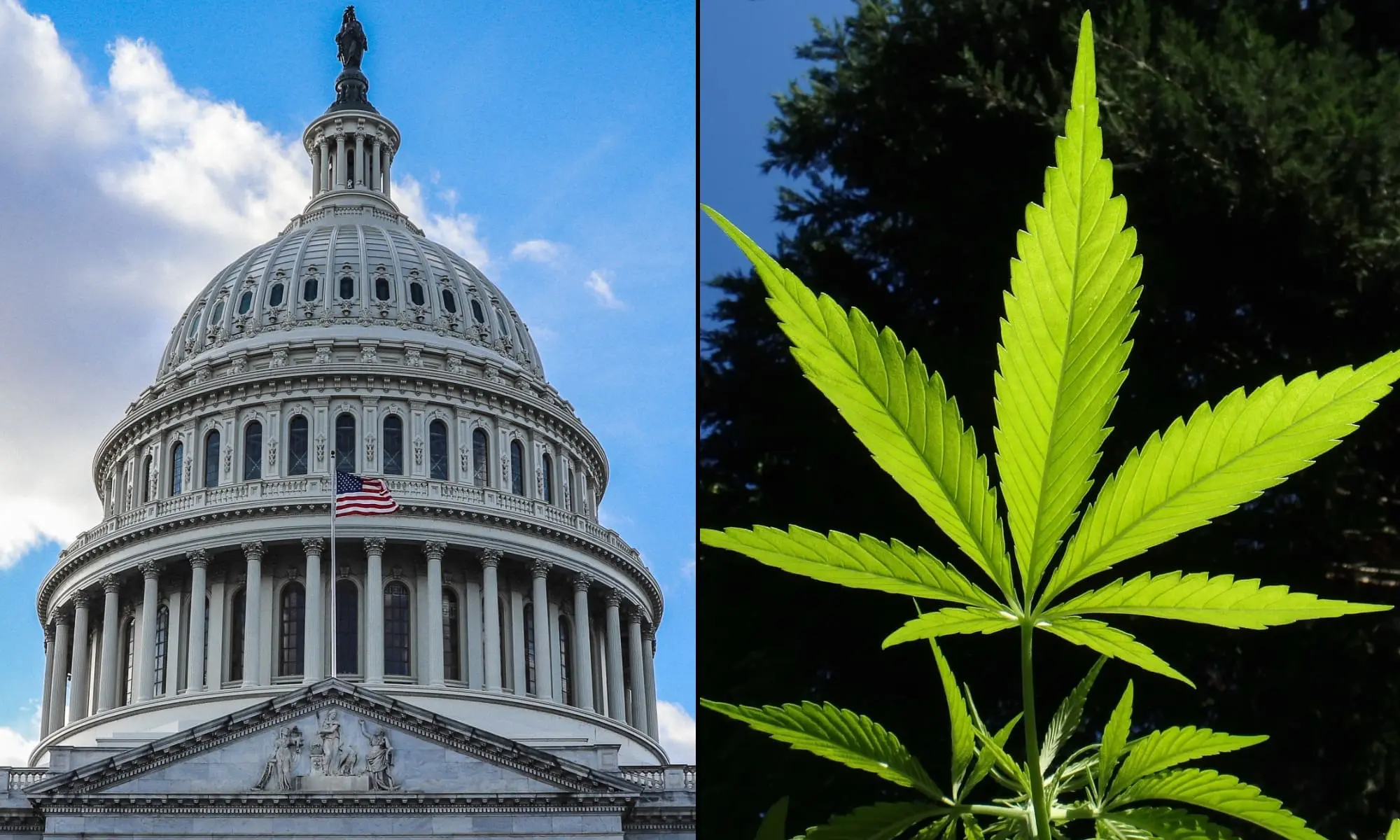Politics
GOP-Controlled Senate Committee Warns DC That Marijuana Is Federally Illegal, With ‘Enhanced Penalties’ For Sales Near Schools

GOP members of a powerful Senate committee are issuing a reminder that marijuana remains illegal under federal law and that the sale of cannabis near public schools and playgrounds can carry “enhanced penalties”—an issue they are specifically highlighting in relation to the location of dispensaries in Washington, D.C.
The Republican majority in the Senate Appropriations Committee released the text of a Financial Services and General Government (FSGG) spending bill and an attached report on Tuesday. As expected, the legislation itself retains a rider long championed by Rep. Andy Harris (R-MD) barring D.C. from using its tax dollars to legalize and regulate recreational marijuana sales, despite voters approving a ballot initiative to allow possession and home cultivation more than a decade ago.
In the report, a section on funding for “emergency planning and security costs” associated with the federal government’s presence in the District includes additional language related to cannabis enforcement and zoning issues.
Here’s the text of that section:
“Marijuana Dispensary Proximity to Schools—The Committee reminds the District that the distribution, manufacturing, and sale of marijuana remains illegal under Federal law, which includes enhanced penalties for such distribution within one thousand feet of a public or private elementary, vocational, or secondary school or public or private college, junior college, or university, or a playground, among other real property where children frequent.”
The report language is being released months after anti-marijuana organizations formally narced on several locally licensed cannabis businesses in D.C.—sending a letter to President Donald Trump, the U.S. attorney general and a federal prosecutor that identifies dispensaries they allege are too close to schools despite approval from District officials.
The groups said that while they were “pleased” to see former interim U.S. Attorney Ed Martin “take initial steps against one of the worst offenders” by threatening a locally licensed medical marijuana dispensary with criminal prosecution back in March, “we have not seen any public progress since then.”
Martin, for his part, has since been tapped by Trump to serve as U.S. pardon attorney.
Meanwhile, the underlying FSGG spending bill put forward by the committee’s GOP majority would continue to prohibit D.C. from creating a regulated, commercial cannabis market.
Here’s the text of the bill language:
“SEC. 809. (a) None of the Federal funds contained in this Act may be used to enact or carry out any law, rule, or regulation to legalize or otherwise reduce penalties associated with the possession, use, or distribution of any schedule I substance under the Controlled Substances Act (21 U.S.C. 801 et seq.) or any tetrahydrocannabinols derivative.
(b) No funds available for obligation or expenditure by the District of Columbia government under any authority may be used to enact any law, rule, or regulation to legalize or otherwise reduce penalties associated with the possession, use, or distribution of any schedule I substance under the Controlled Substances Act (21 U.S.C. 801 et seq.) or any tetrahydrocannabinols derivative for recreational purposes.”
Senate Democrats on the committee have made clear they don’t associate themselves with the newly released bill and report, though leadership hasn’t specifically called out the cannabis components.
“It’s disappointing that Senate Republicans chose to release a partisan bill instead of working with Senate Democrats to reach a final compromise,” Sen. Patty Murray (D-WA), vice chair of the panel, said.
“While the FSGG bill funds critical functions of government, I wish this bill had addressed additional important issues,” she said. “I remain committed to reaching a bipartisan agreement on the bill in conference in the coming weeks, alongside the remainder of our funding bills, and I’ll continue fighting for working families at every step of the way.”
Recreational cannabis possession and personal cultivation is legal in D.C. under a voter-approved ballot initiative, though commercial sales of non-medical marijuana remain illegal.
Because of the congressional rider that’s been renewed annually since that vote, the District hasn’t been able to use its local funds to implement a system of regulated recreational cannabis sales, so officials have taken steps to expand the city’s existing medical marijuana program as a workaround.
Rep. Eleanor Holmes Norton (D-DC) has routinely criticized appropriators for putting forward bills that restrict the District’s autonomy in a number of ways, including the rider to “prohibit the use of funds to commercialize recreational marijuana.”
Norton said in May that she would again again push her colleagues to join her in an effort to remove the cannabis language.
Trump’s budget request that he released in June also contained the Harris rider preventing marijuana sales in D.C. Former President Joe Biden also repeatedly requested the continuation of the D.C. cannabis rider in budget proposals during his time in office.
While D.C. hasn’t been able to use its local funds to implement a system of regulated recreational cannabis sales over the last decade, local officials have taken steps to expand the city’s existing medical marijuana program as a workaround.
In March, meanwhile, the White House called the District’s move to decriminalize marijuana an example of a “failed” policy that “opened the door to disorder.”
In a fact sheet about an executive order that Trump signed—which is broadly aimed at beautifying the District and making it more safe—the White House listed several local policies in the nation’s capital that it takes issue with, including cannabis reform. That’s despite the president’s previously stated support for a states’ rights approach to marijuana laws.
“D.C.’s failed policies opened the door to disorder—and criminals noticed,” it says, citing “marijuana decriminalization,” as well as the District’s decision to end pre-trial detentions and enforcement practices around rioters, as examples of such policies.



